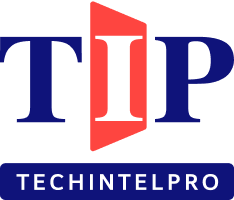


The Linux Foundation has introduced the Agentgateway project at Open Source Summit Europe 2025 in Amsterdam, a significant step toward advancing AI agent adoption. Developed by Solo.io, this open-source, AI-native proxy optimizes connectivity, security, and observability for agentic AI environments, addressing the limitations of traditional gateways.
Linux Foundation hosts Agentgateway, an AI-native proxy by Solo.io.
Supports Agent2Agent (A2A) and Model Context Protocol (MCP).
Enhances security, observability, and governance for AI agents.
Backed by AWS, Cisco, Microsoft, and other industry leaders.
Vendor-agnostic, community-driven under Linux Foundation governance.
Showcased at Open Source Summit Europe 2025 in Amsterdam.
The Agentgateway project, contributed by Solo.io, is the first data plane designed specifically for AI agents, enabling secure and scalable communication across agent-to-agent, agent-to-tool, and agent-to-LLM interactions. Unlike legacy API gateways, Agentgateway supports modern AI protocols like Agent2Agent (A2A) and Anthropic’s Model Context Protocol (MCP). “The future of software is agentic and that changes everything about how systems connect and communicate,” said Idit Levine, CEO of Solo.io. “We built agentgateway from the ground up to handle the protocols, patterns, and scale required for agentic infrastructure.”
Agentgateway has garnered support from major organizations, including AWS, Cisco, Huawei, IBM, Microsoft, Red Hat, Shell, and Zayo. “The rise of AI agents depends on a strong foundation of open source infrastructure that is built to last,” said Jim Zemlin, executive director of the Linux Foundation. “We’re pleased to welcome agentgateway to the Linux Foundation where it will benefit from the neutral governance and global community needed to build open, interoperable, secure agent systems.” This collaboration ensures Agentgateway remains vendor-agnostic and community-driven, fostering innovation in AI workflows.
Agentgateway addresses critical enterprise needs for security, governance, and observability in AI systems. “Agentgateway’s integration with OpenTelemetry provides a robust foundation for observability, allowing us to treat each request-response pair as an evaluable unit,” said Sathish Krishnan, executive director/distinguished engineer, cloud & AI, UBS. Additionally, Justin Cappos, professor at New York University, noted, “One of the biggest open security problems today is how to do MCP security effectively… the agentgateway project provides a first step toward addressing some of the important issues with basic role-based access control and visibility.”
The project supports enterprises in scaling AI responsibly. “AI agents are rapidly transforming how enterprises work and innovate,” said Chen Goldberg, senior vice president of engineering at CoreWeave. “Agentgateway delivers the foundation enterprises need.” By bridging agent-to-agent and agent-to-MCP server communications, Agentgateway fills a critical gap in the AI ecosystem, as highlighted by John Roese, global chief technology officer & chief AI officer, Dell. Its open-source nature ensures accessibility and adaptability for developers worldwide.
Agentgateway’s debut at Open Source Summit Europe 2025 marks a pivotal moment for AI infrastructure. Hosted by the Linux Foundation, the project is set to drive interoperable, secure, and scalable AI agent systems, empowering enterprises to innovate rapidly while maintaining robust governance.
The Linux Foundation is the world's leading home for collaboration on open source software, hardware, standards, and data. Linux Foundation projects are critical to the world's infrastructure including Linux, Kubernetes, Node.js, ONAP, OpenChain, OpenSSF, OpenStack, PyTorch, RISC-V, SPDX, Zephyr, and more. The Linux Foundation is focused on leveraging best practices and addressing the needs of contributors, users, and solution providers to create sustainable models for open collaboration.
